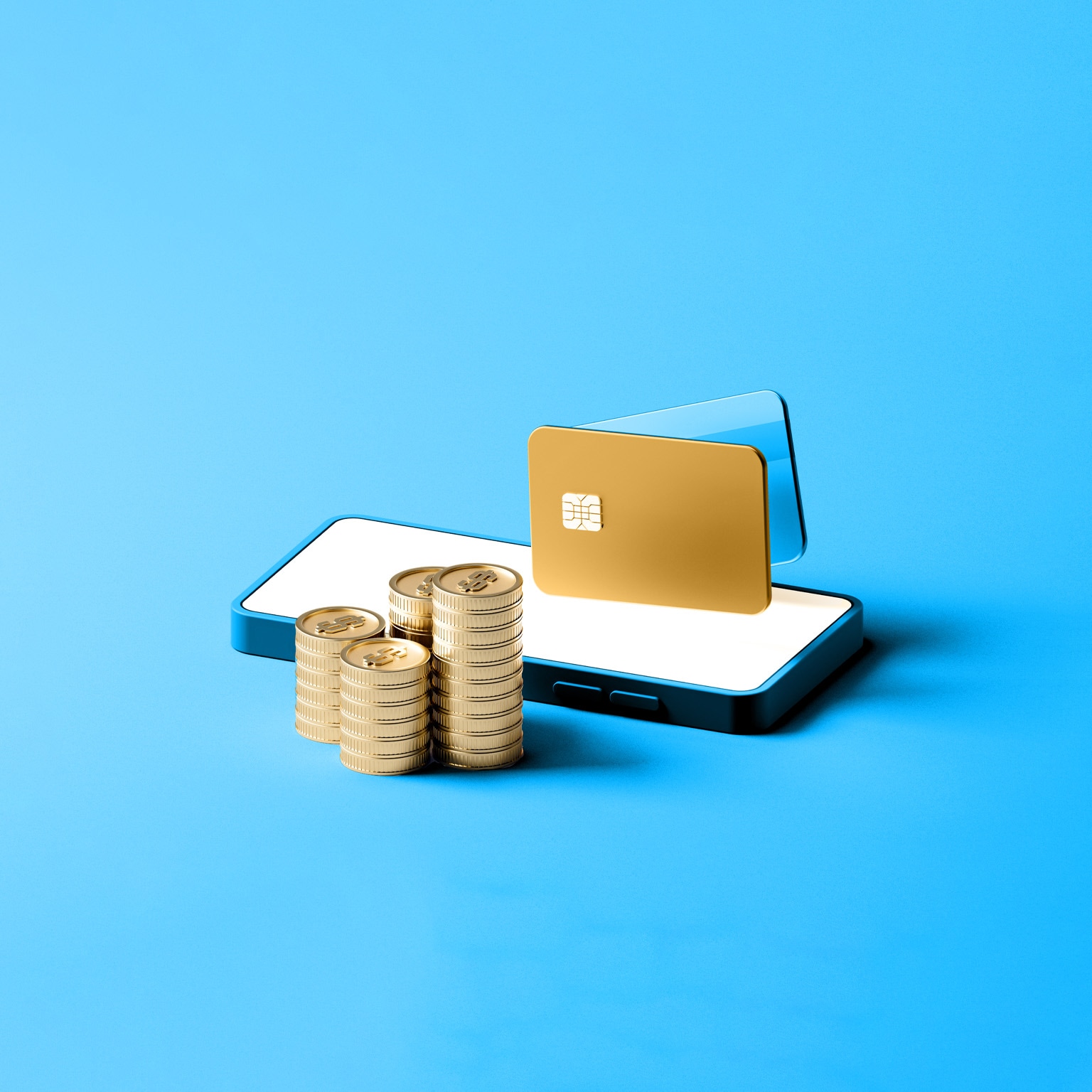How to improve your credit score with rent payments in Canada
Discover how rent reporting tools in Canada can help you improve your credit score. Learn about the benefits, available tools and how to get started. The post How to improve your credit score with rent payments in Canada appeared first on MoneySense.

If you’re renting in Canada, you might not think that your monthly rent payments have anything to do with building your credit score. While home owners can strengthen their credit profile through mortgage payments, renters traditionally haven’t had the same opportunity. After all, paying rent isn’t the same as taking out a loan or using a credit card. But it can be a significant portion of someone’s expenses—and consistently making these payments should count for something. This is where rent reporting tools can help.
It’s a relatively new concept in Canada, but several tools and services are emerging to help renters report on-time payments to credit bureaus as a means to establish credit without taking on additional debt. In this article, we’ll explain how you can improve your credit score with rent reporting, and we’ll discuss the benefits, available tools and how to get started.
“Using a rent reporting tool is a simple way for renters to leverage their on-time payments, helping them build credit without taking on additional debt.” —Cathy Plowman, Credit Canada Credit Counsellor
What is a credit score?
A credit score is a three-digit number (from 300 to 900) that reflects how well someone manages credit—for example, whether they make loan payments or pay credit card bills on time. The higher your score, the more creditworthy you are considered to be.
Read “What is a credit score?” in the MoneySense glossary.
What are rent reporting tools?
Normally, rent payments don’t show up on a credit report, but a rent reporting tool can record these payments with one or both of Canada’s main credit bureaus—Equifax and TransUnion. This helps young people, newcomers, and those recovering from a bad credit score to build or improve their credit score by showing a history of consistent, on-time payments.
A solid credit score is more than just a number—it opens doors to better financial products, saves you money and improves opportunities for renting, car insurance and employment. Having good credit is important because it can help you qualify for products when you need them, and get the best interest rates.
While landlords in Canada typically require a credit check for you to qualify for a rental, monthly rent payments are not automatically included in your credit report unless you enroll in a reporting program. “Using a rent reporting tool is a simple way for renters to leverage their on-time payments, helping them build credit without taking on additional debt,” says Cathy Plowman, Credit Canada Credit Counsellor.
Have a personal finance question? Submit it here.
Benefits of rent reporting
Rent reporting can help those with a poor credit history or no credit history to build a better credit score, which is crucial for securing loans, getting better interest rates, and even renting or owning a home in the future. When on-time rent payments are reported to credit bureaus, it shows lenders you are financially responsible. Here are more benefits.
Your credit score can increase—here’s how long it takes
Over time, these positive reports can boost your credit score. While no one can predict how much your score will increase, according to Borrowell, subscribers with credit scores of 600 or under saw an average increase of 32 points within seven months. Renters using FrontLobby also reported credit score jumps of 36 to 84 points in the first six months.
Better access to loans and mortgages
Rent reporting can make it easier for renters, especially those without a traditional credit history, to access financial services, such as a car loan or a mortgage. These tools are particularly valuable for people who are new to Canada, younger renters, or those who prefer renting over owning, and who may not have much credit history. “Including rent payments in credit reporting is a big step toward making financial opportunities available to more people, especially those who have had trouble building credit in the past,” says Plowman.
It’s good to be financially disciplined
When rent payments are tracked and reported to the credit bureaus, renters can be motivated to keep up with their payment schedule. Rent reporting helps renters avoid late fees and penalties by encouraging timely payments. It also may foster better financial habits as renters become more aware of their budgets and spending.
“Including rent payments in credit reporting is a big step toward making financial opportunities available to more people, especially those who have had trouble building credit in the past.” —Cathy Plowman, Credit Canada Credit Counsellor
What rent reporting tools are available in Canada?
Some of the most commonly used rent reporting tools in Canada include Borrowell, FrontLobby, Koho and CityLending Centres. (More on these services below.) In addition, some banks, like RBC, TD and Scotiabank, have partnerships with rent reporting programs to help tenants report their rent payments. However, each service has different features, fees and limitations, so you’ll want to do some research.
Some tracking services are geared more toward tenants, while others work with the Landlord Credit Bureau to let both tenants and landlords report payments. For programs where both are involved, tenants get to build credit by reporting their payment activity while landlords can use these services to verify a tenant’s payment history.
In Canada, Equifax is the only credit bureau that accounts for rent payments. Since TransUnion does not integrate rent payment history into its scoring models, your credit score there might be different from what you see with Equifax. However, using a tool that reports to TransUnion can still be beneficial despite it not directly influencing your score. Having a consistent history of on-time rent payments can help you qualify for certain types of credit in the future, and some lenders or landlords may also consider your rent payment history when evaluating your creditworthiness. It’s a good idea to check your credit reports from both bureaus regularly—at least once a year—to make sure the information is accurate.
Here is how some of these tools compare to one another:
Provider Credit bureau reporting Plans Cost Limitations Borrowell, serving tenants Equifax • Linked to bank account to report rent payments
• Can report up to 24 months of past rent payments$8/month Available only in certain provinces, must be a Borrowell member FrontLobby, serving tenants and landlords Equifax and TransUnion • Works with the Landlord Credit Bureau, integrates with various property management platforms for ease of use
• Offers basic and premium plans$0 for basic, $4/month for premium Requires both tenant and landlord participation for reporting Koho, serving tenants Equifax • Tracks rent payments made from a Koho account using e-transfers, pre-authorized debits or a Koho card
• Offers three plans: Essential, Extra and Everything$0 for Essential, $9/month for Extra and $19/month for Everything Rent can only be reported if paid via a Koho account CityLending Centres, serving tenants and landlords Equifax and TransUnion • Rent verification for both tenants and landlords $5/month, plus a $20 set-up fee Additional features, like reporting past rent payments, cost an extra fee of $120
How to start reporting your rent to credit bureaus
Once you’ve selected the rent reporting tool that’s best for you, you’ll need to gather and input a few details into the platform, such as your lease agreement, proof of your rent payments (like bank statements or receipts), and some basic personal information to verify your identity. However, this will vary based on the tool you choose. Some let you self-report by linking to your bank account and provide the option to report past rent payments, helping you extend your credit history.
If you’re using a service that requires your landlord’s cooperation, you will also need their contact details. Both you and your landlord will have to create accounts through the chosen tool. And your landlord will have to submit your payment data each month. Keep in mind some tools that require landlord involvement will not let you report past rental history—only current and future payments from the time you sign up.
Keep an eye out for any set-up, monthly or cancellation fees, which vary by service, and always read the fine print to understand platforms’ privacy policies. Your personal information is important, so make sure you’re comfortable with how it’s being handled.
Considerations and limitations
When using rent reporting tools, there are a few things to keep in mind. First, not all landlords may be willing to participate in these services, so you might need to select a self-reporting tool like Borrowell’s. In addition, some rent reporting tools charge fees, so it’s important to think about whether the cost is worth the benefit of building your credit. This ensures you’re not taking on any extra unnecessary expenses.
While rent reporting can help improve a credit score, it may not have as large of an impact as paying other types of credit, such as having a credit card or loan. The overall effect of rent reporting on your credit score depends on how consistent and frequent your payments are. Remember, a late or missing rent payment will have a negative impact on your credit score when you report rental payments, so be sure to always pay your rent on time.
Should you report your rent payments to credit bureaus?
Whether you’re looking to boost or establish your credit score, a rent reporting tool can be a valuable resource. These services and programs can help renters build a positive credit history without taking on more debt. This is important for securing better financial products and even renting or owning a home in the future.
As professionally certified Credit Counsellors with Credit Canada, we can help you understand how to rebuild credit and offer personalized advice on how to manage debt. Contact us today to book a free credit-building counselling session or to speak to a credit counsellor.
Get free MoneySense financial tips, news & advice in your inbox.
Read more about loans in Canada:
- Car loan interest rates: What’s the best Canadians can get?
- Secured loans vs. unsecured personal loans: Which should Canadians get?
- Personal loan versus line of credit: Which should you choose?
- How to buy a car in Canada and get the best loan rate
This article was created by a MoneySense content partner.
This is an unpaid article that contains useful and relevant information. It was written by a content partner based on its expertise and edited by MoneySense.
The post How to improve your credit score with rent payments in Canada appeared first on MoneySense.
































/https://tf-cmsv2-smithsonianmag-media.s3.amazonaws.com/filer_public/b9/66/b966cb9e-8fe2-4d1c-bd7a-ba59740291ae/smithmag-podcast-s03-ep02-auroras-article.jpg?#)








































